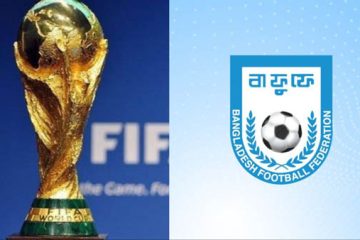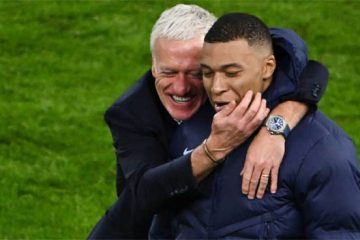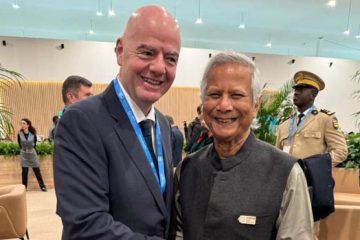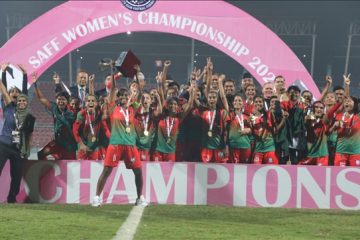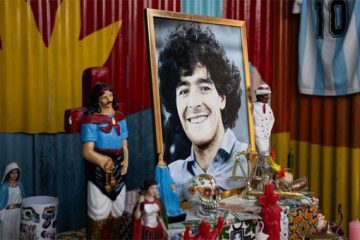The sports sections of British newspaper The Guardian and US newspaper The New York Times were all about Argentina’s football team coach Diego Maradona. He is on the forecast-spotlight and his performance as the team mastermind was the core of the analyses. According to the British article, “his renaissance as Argentina’s head coach is the story of the year,” and the US journalist began his letter-style piece with the phrase “Dear Diego: It is high time that we critics said sorry, and thank you.”
The Guardian assures: “The latest chapter of his saga began in November 2008, when he landed in Glasgow to start his new life with a friendly match against Scotland at Hampden Park – where, 29 years earlier, he had scored his first international goal.”
As of that, the British news story depicts him as a surprising coach. “Few imagined that the mission would achieve its aim. At that point the sum total of Maradona’s coaching experience amounted to 23 matches in charge of Deportivo Mandiyú of Corrientes and Racing Club of Buenos Aires. The first, in 1994, ended in relegation and the second, the following year, in chaos. So no one knew what to expect when he was suddenly appointed to take over from Alfio Basile midway through the World Cup qualifying campaign, except the near-certainty of further chaos.”
This article goes on to unfold every victory and defeat Maradona has faced as the Argentine coach. According to The Guardian’s view, Maradona was a patient learner.
Another paragraph give worth-mentioning room star-player Messi: “Another significant piece of man-management has taken place during the tournament itself, and has involved Lionel Messi, by general consent the best player of his generation, as Maradona once was.”
To conclude, The Guardian stresses: “The contrast with other coaches at this World Cup is almost hilariously vivid. But then none of them has lived a life remotely like his. It is as though everything in Maradona’s 49 years, the bad and the good, the sublime and the reprehensible, has been leading up to this, and he is not going to let it go now.”
As for The New York Times piece, its author, Rob Hughes, writes the article as a personal letter to Maradona, with an opening line with which he asks the coach for an apology: “Dear Diego: It is high time that we critics said sorry, and thank you.”
“We misjudged your appointment as coach,” he admits. “We believed that Julio Grondona, the 78-year-old president of Argentina’s soccer federation, had lost all sense of reason in asking you, a fading icon without a coaching badge, to pick up a broken national team and lead it through this World Cup. Well, so much for so-called expertise.”
Hughes continues by saying that “whatever happens between Argentina and Germany in Cape Town on Saturday, your team has been the joy of this tournament.”
Later on in the article, after describing Maradona’s chaotic past and assuring that history is against the team, he praises the coach’s techniques by writing that “it sounds, and looks, so obvious. Germany represents a real challenge, especially to your defense. Yet we’re not sure you care about any opposition. The further your team goes, the closer you get to stripping away the myth and mystique that team management is a science that can only succeed through years of study of the manual.”

